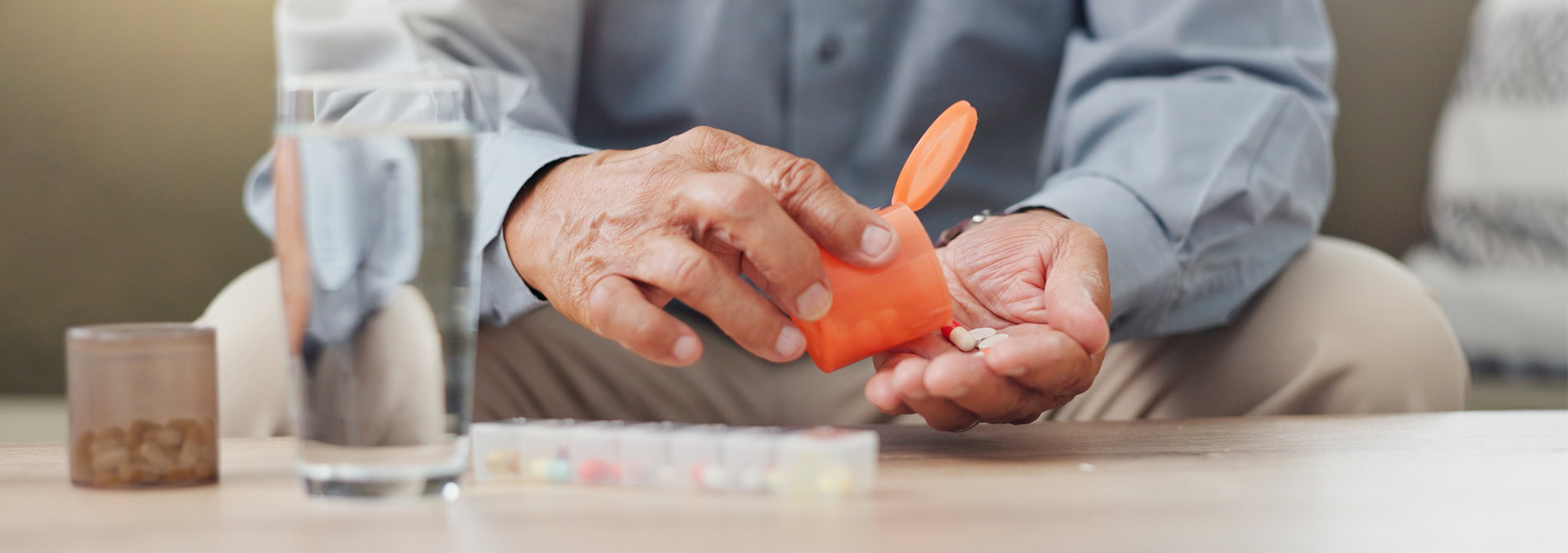In the midst of the global COVID-19 pandemic, part of the state response in the U.S. was keeping liquor stores open. The choice confused some people, likely unaware of the impact a lack of access to alcohol would have on those currently living with alcohol addiction. Today let’s talk about the risks of attempting a withdrawal at home, during a national crisis or anytime.
Withdrawal at home without the supervision of trained medical professionals can lead to serious complications and even death. Symptoms can vary, depending on the drug, with opioid withdrawal having a higher risk of serious complications and death than alcohol or benzos withdrawal. With the threat of emotional instability accompanying the withdrawal symptoms, the safest way to detox is through a medical detox where both tapering of the physical dependence and supporting a patient’s mental and emotional well-being are provided as part of the services.
If you or a loved one need help, call our admissions team today at 561-841-1033.Withdrawal Symptoms
Once physical dependence on a substance begins, interrupting its use or attempting to quit it altogether can have an adverse affect on your body. The symptoms can begin mildly and intensify within a few days. Some of these symptoms may have a more severe impact on the health and well-being of the person beginning withdrawal. Without medical attention for withdrawal from certain substances, complications can develop and lead to death.
Which of these symptoms have you experienced during your most recent withdrawal period?
- Agitation
- Anxiety
- Cramps
- Coma
- Depression
- Diarrhea
- Fatigue and/or insomnia
- Hallucinations
- Mood swings
- Nausea
- Respiratory depression
- Seizures
- Trembling
- Vomiting
Withdrawal from Alcohol
Withdrawal during a detox can look and feel different depending on the substance. Ending the use of alcohol, the most commonly abused substance, can be surprisingly more dangerous when a patient is attempting a detox at home. While a medical detox at a reputable treatment facility can manage and minimize side effects, withdrawal from alcohol at home can add additional complications to the list of common side effects above.
One of the most profound side effects of alcohol withdrawal is delirium tremens, commonly referred to as DTs. These can show up a few days after you quit drinking or even more than a week later. This serious side effect can cause you to become confused and disoriented and lead to hallucinations—and even death in some cases.
Withdrawal from Opioids
Withdrawal in this category can include attempted at-home detox from prescription painkillers or heroin, both a much higher risk for complications and death if done without the help of trained medical professionals. Symptoms can begin as quickly as the same day after a last dose, within 12 hours, although mild at first in the form of agitation, diarrhea, insomnia, and muscle aches. Less than a week after use of opiates has ended, withdrawal symptoms can grow more intense and include anxiety, panic attacks, and vomiting.
One of the biggest risks of withdrawal at home is that there are no other supports in place to prevent relapse. After detox, the person will have a lower tolerance to the opioid, meaning that a lower dose is needed to achieve the same high a user was accustomed to before detox began. By not adjusting the typical dose to a lower amount, the user may consume too much at one time and overdose.
Withdrawal from Benzos
Benzos are another substance with a potentially harmful and deadly outcome when withdrawal is handled at home without medical attention. A gradual lowering of doses over a period of time is the safest way to detox from these substances, and withdrawal symptoms can begin in 6-12 hours from the last dose. These include fatigue, insomnia, and mood swings.
As the adjustment to the dose amount of benzos is safest when done on a schedule, the attempt to detox at home alone without understanding how to taper its usage and how to treat the side effects can lead to panic attacks, depersonalization, seizures, hallucinations and even death. Treatment specialists strongly recommend turning to medical professionals at a detox facility to safely respond to the dependence on benzos.
Emotional Well-Being during Withdrawal
Those addicted to alcohol, opioids, benzos, or other substances may be focused on detoxing from the physical dependence of the drug, but may not have prepared for the emotional aspect of withdrawal. Beyond providing a safe medical detox, a treatment facility with programs for substance use disorders can provide support for the emotional instability that can accompany a detox, including anxiety, depression, paranoia, rage, and more. Self-destructive behavior associated withdrawal and possibly underlying mental health issues may lead to suicide.
The safest way to experience withdrawal from any substance is at a medical detox with supervision by trained professionals. During this process, not only can you be treated for the symptoms of lowering dependence on a substance, you can participate in a program that provides the support to restore your emotional well-being as well as address any underlying mental health issues contributing to or caused by your addiction. When searching for a treatment facility in your area, look for services mentioning dual diagnosis treatment and on-site medical detoxification.
Hanley Center – A Path to Recovery
Hanley Center is a well-known care provider offering a range of treatment programs targeting the recovery from substance use, mental health issues, and beyond. Our primary mission is to provide a clear path to a life of healing and restoration. We offer renowned clinical care and have the compassion and professional expertise to guide you toward lasting recovery.
For information on our programs, call us today: 561-841-1033.




